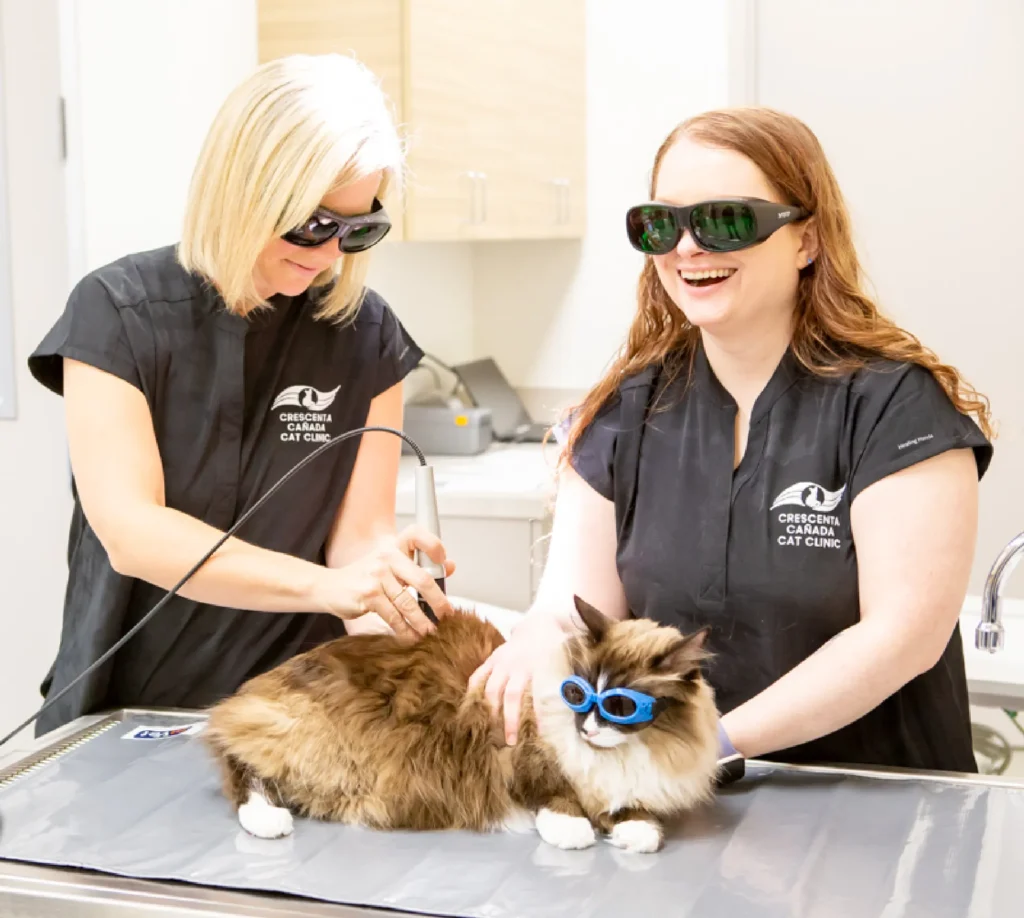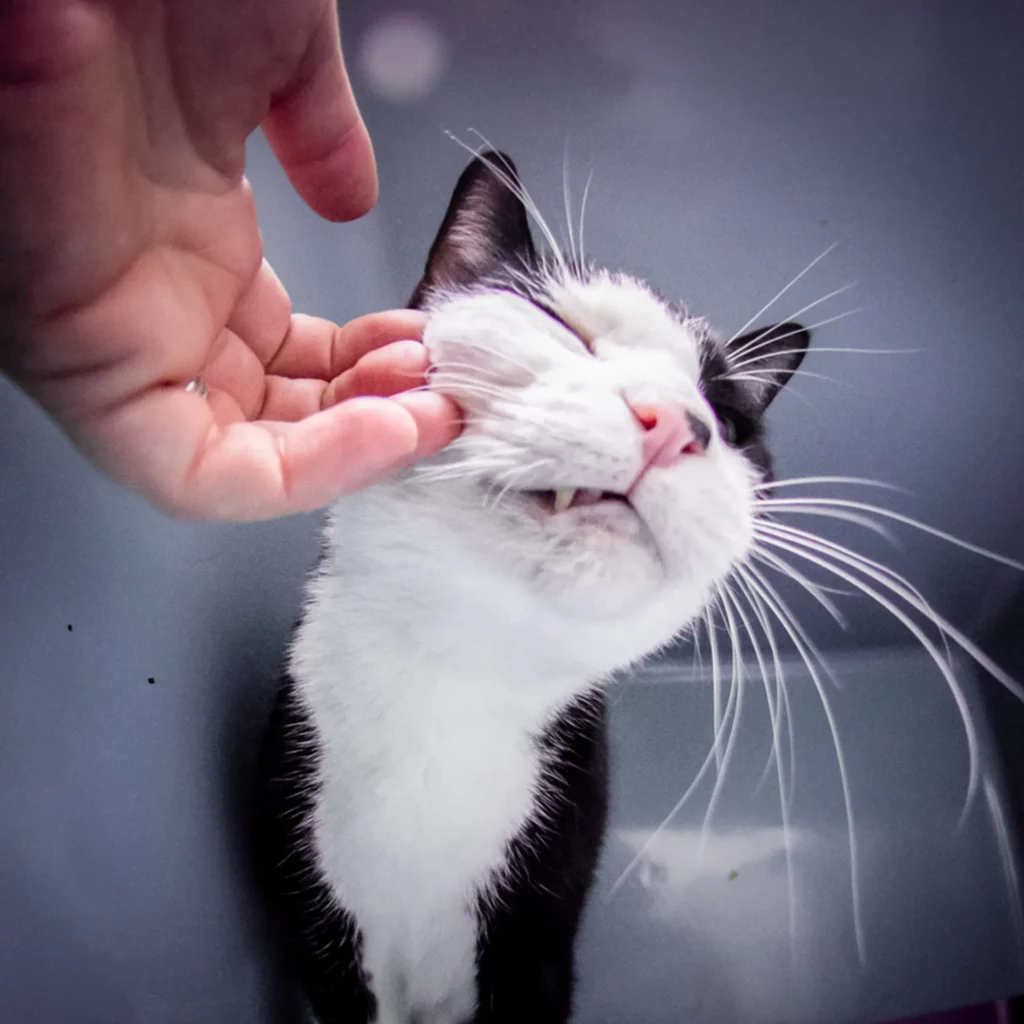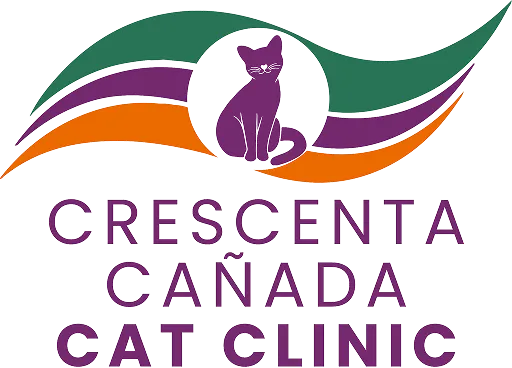Skin and Dermatology Care
Your cat’s skin and coat provide vital clues about their physical and emotional health. While cats are generally fastidious and self-grooming, routine veterinary visits and at-home care can support a healthy coat and skin, and provide early detection for common problems.
Common Skin Disorders in Cats
Despite your cat’s best efforts—which may include spending 30-50% of their day grooming—numerous conditions can affect their skin and coat, including:
- Allergies (environmental, food, or flea related)
- Skin infections (bacterial or fungal)
- Parasites (fleas, ticks, or mites)
- Abscesses
- Systemic diseases (endocrine disorders, diabetes)
- Behavior disorders (excessive grooming)
These conditions cause more than visible harm—they can affect your cat’s well-being, behavior, and quality of life. If you notice a change in your cat’s skin or coat, schedule an appointment at Crescenta Cañada Cat Clinic.

Advanced Dermatology Care for Cats
Addressing skin conditions in cats generally involves alleviating discomfort, identifying the cause, and providing a comprehensive treatment plan for long-term control and relief. Diagnostic testing used to identify the underlying cause is performed on-site and may include:
- Skin scrapes and cytology
- Ear cytology
- Culture and sensitivity testing (bacterial or fungal)
- Allergy testing
- Skin biopsy
Is Your Cat Struggling With Skin Problems?
Skin problems can occur at any time in your cat’s life. Schedule an appointment if you notice signs such as:
Excessive scratching, biting, or licking
Hair loss or thinning
Dry or dull coat
Red, swollen, or scaly skin
Head shaking
Sores, bumps, or foul odors
Ear discharge
Fleas or flea dirt

Treating Your Cat’s Skin Condition
Treatment options depend on your cat’s test results and clinical signs. This may include:
- Medicated shampoos and topical treatments
- Oral medications, such as antibiotics, antiinflammatories, or antihistamines
- Itch-reducing oral or injectable medications
- Diet changes and/or supplements to promote skin health or reduce allergen exposure
- Year-round flea and tick preventives
- Allergy desensitization therapy
- Ongoing support and follow-up care
Supporting Your Cat’s Skin Health
Your cat’s skin and coat health affect their emotional well-being. Help them look and feel great by taking supportive actions to promote skin and coat health, such as feeding a veterinarian-recommended diet, brushing your cat regularly, administering year-round flea and tick preventives, and keeping your cat at a healthy weight.
Whether your cat needs help for a frustrating skin condition or you’d like tips on how to keep their coat in tip-top condition, our team can help your cat experience radiant health inside and out.

